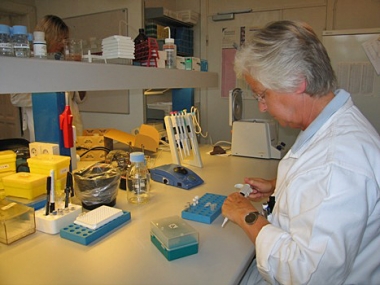Research

TRAINBIODIVERSE is a multinational network of European research institutions and independent private sector representatives working in collaboration to train young scientists in multi-disciplinary aspects of soil biodiversity, ecosystem services and the economic significance of European soils. The aim of TRAINBIODIVERSE is to monitor, evaluate and improve the quality of biodiversity in European soils and to provide critical information to political, administrative and regulative bodies to enhance policy making for European ecosystem services and agricultural production.
The scientific work will be divided into several workpackages:
- Biodiversity Toolbox
- Biodiversity and Soil Function
- Soil Quality Indictors
- Impact of External Perturbation on Ecosystem Biodiversity
- Economic Value of Biodiversity and Ecosystem Services
A vast range of coordinated interdisciplinary training and networking opportunities will be made available to ensure that young European researchers command enhanced research, intersectorial and communication skills from the onset of their career. The consortium encompasses academic, non-academic industrial, economic and political professions from relevant sectors. On site research will be conducted in carefully chosen pan-European field sites and studied using high throughput state of the art molecular biology and biotechnology methods in chosen European centres of excellence. The scientists will then have the opportunity to evaluate and expand modern techniques in molecular and microbial and biology apply them where relevant to European policy. For the first time TRAINBIODIVERSE will be able fill the gap between European scientific expertise and application political policy on biodiversity and ecosystem services in Europe. TRAINBIODIVERSE will secure the future of European ecosystem services and agricultural production and therefore, the wellbeing of human populations and the continued availability of sustainable recourses that are underpinned by soil microbiology.
Soils, underpinning ecosystem services, represent an economic asset. However, global change, including changes in the use of land, climate change and pollution - alone and/or in combination – increasingly influence soils, their biodiversity and the ecosystem services that they provide. A better understanding of the links between soil biodiversity and soil services is needed urgently, as well as a standardised method to provide land users, managers, economists and policy makers with a robust and unambiguous tool to quantify these services and provide guidance for soil management strategies. Soil organisms provide a range of economically important services to mankind such as cycling of nutrients, support of plant growth and health, provision of clean drinking water, delivery of genetic resources to industry, agriculture and storage (as well as production of greenhouse gases). Traditionally, soil sciences have tried to translate the ability of a specific soil to support these services, into what is called “soil quality”. However, soil quality is notoriously difficult to define and the scientific community has struggled for years to do so. In effect, the results have led to the proposal of a range of related concepts with no single measure or definition. Furthermore, procedures that are time-consuming, costly or involving arbitrarily selected biological indicators reduce the range of indicators that can be examined and affect the current measures of soil quality.
Trainbiodiverse will:
- Develop and validate new methodology for estimating soil biodiversity and activity
- Develop a high throughput analyses toolbox for soil biodiversity and activity
- Investigate the interactions and links between soil abiotic parameters, geology, history, biodiversity and soil function
- Investigate, develop and validate soil bioindicators for biological diversity and activity
- Assess the inter-relationships between biodiversity levels in soil ecosystems,
- Quantify the economic value of soil services provided by soil biodiversity



